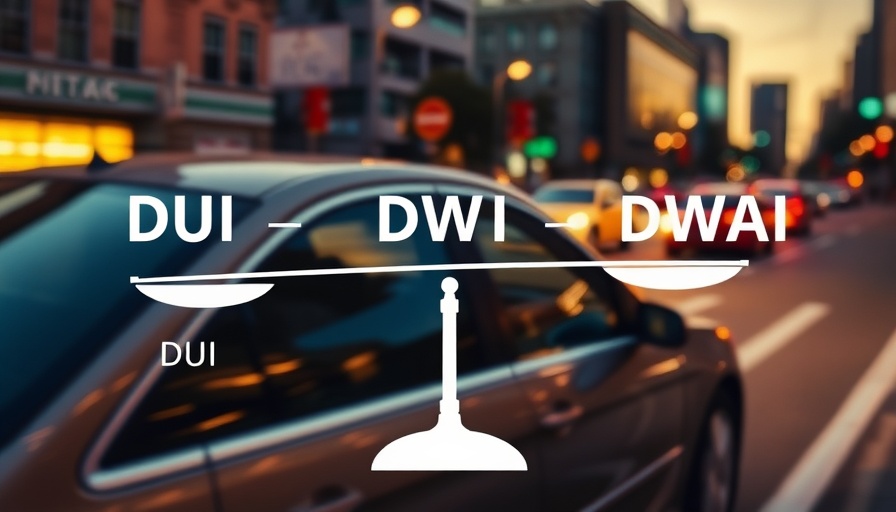
Understanding DUI, DWI, and DWAI: Key Distinctions for California Drivers
Driving under the influence is a serious charge, but the terminology surrounding impaired driving can often be confusing. Whether you encounter the acronyms DUI, DWI, or DWAI, knowing the differences is crucial for drivers, especially in states like California where legal definitions and consequences vary.
What is a DUI?
DUI, or Driving Under the Influence, is one of the most recognized terms in the United States for impaired driving. A person can be charged with a DUI for operating a vehicle while under the influence of alcohol, drugs, or a combination of both. In California, if your blood alcohol concentration (BAC) hits 0.08% or above, you are legally considered intoxicated—however, it's possible to face charges even with a lower BAC if drug use is involved.
Decoding DWI: Driving While Intoxicated or Impaired
The acronym DWI can mean either Driving While Intoxicated or Driving While Impaired, depending on the state. In states like Texas, DWI indicates being drunk beyond legal limits, while DUI is reserved for cases involving underage drivers. This reflects a nuanced approach to impaired driving laws, emphasizing the importance of local understanding.
DWAI: Driving While Ability Impaired
Less commonly known is DWAI, which stands for Driving While Ability Impaired. States like New York utilize this term primarily to indicate that a driver is impaired but not necessarily above the legal BAC limit. In New York, a BAC between 0.05% and 0.07% could lead to a DWAI charge, which carries penalties like fines and possible jail time.
Legal Context and Implications in California
In California, the term DUI encompasses all forms of impaired driving, with a unified set of penalties that apply regardless of whether drugs or alcohol are the cause. First-time offenders might face probation, fines, and even jail time, alongside mandatory DUI education. Understanding these terms is essential for all California drivers, given the enforcement of implied consent laws, which demand cooperation with chemical testing during arrests.
Why Knowledge Matters
For California residents and drivers everywhere, recognizing the distinctions between DUI, DWI, and DWAI is crucial. Not only does it impact legal repercussions, but it also influences how individuals navigate their responsibilities on the road. Being informed can lead to safer driving habits and better decisions when it comes to consuming alcohol or other substances.
 Add Row
Add Row  Add
Add 




Write A Comment